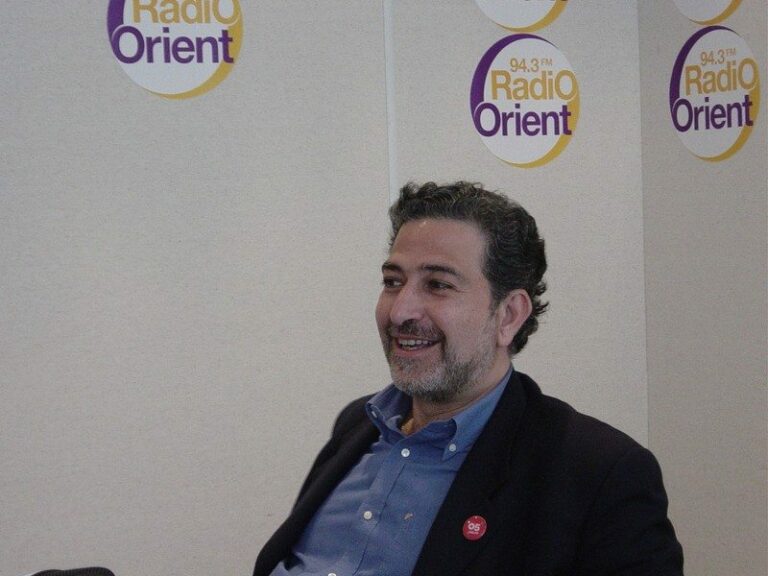Ten years ago this week, our friend and colleague Samir Kassir was murdered outside his home, likely at the instigation of individuals who are alive and well in our republic of lies. Since then many of us have felt his absence often. His presence would have been valuable in helping to guide us through the tremors of the Middle East, with his keen eye and audacious pen.
But what would Kassir’s mood have been? Here was a man whose last book was a hopeful essay titled “Considerations sur le Malheur Arabe,” translated roughly as “Considerations on the Arab Misfortune.” Its title notwithstanding, the essay was a call for an Arab revival, drawing on what was best in the Arab past. The ambient doubts about the region, Kassir wrote, meant “neglecting … a more recent time that appeared to bring with it promise. The reason is that 40 years ago not only was the overall picture of the Arab world largely optimistic, but also the Arabs appeared to represent a world in movement, an integral part of, and sometimes a leader in, Third-World revolution.”
Kassir would have identified the uprisings of 2011 as confirmations of his belief that the Arabs had in themselves what was required for their own revitalization. He would have been particularly pleased to see his Syrian brethren rising up against the vampirical regime of Bashar Assad, even if he would not have been in any way surprised by its barbarous reaction.
But then what? One wonders how Kassir would have explained where we now find ourselves. In Egypt, a thuggish military regime is back in power after having pushed aside a bigoted, overreaching Muslim Brotherhood-dominated government. In Libya tribal chaos rules, while jihadis make headway thanks to the vacuum. In Syria, once the beating heart of the Arab nationalism Kassir took so seriously, there is only mass slaughter, a Hobbesian world of all against all in which Muslim extremists have made worrisome gains. With the exception of Tunisia, the region has not resurrected thanks to what was best in the Arabs’ heritage; it has been overcome by their worst pathologies, infinitely multiplying Arab misfortunes.
Kassir was a premier chronicler of that period of modern Arab history defined by the “great issues”: Arab nationalism, the Palestinian struggle, anti-colonialism, Western intervention in the Middle East. But also such things as the Lebanese Civil War and the history of Beirut, from its development as a small outpost of the Ottoman Empire into the “laboratory of modernity” that Kassir once described to me in an interview.
The historian in him would have carefully surveyed the wreckage of the region today to offer fresh insights into what is taking place. But in his mid-50s by now, the age when one tends to become more subversive, more skeptical about everything, Kassir would have been tested in his supreme confidence. But he was not into self-delusion, which is why one suspects that his most recent books would have read very differently than “Considerations sur le Malheur Arabe.”
Then there was the man. What images remain a decade on? For me the most enduring is watching Samir in the offices of L’Orient-Express as the magazine neared deadline one late afternoon. At the center of the bedlam, there he was, writing his editorial, eating a sandwich, smoking, ruminating on a topic someone had brought to his attention, joking, a smirk hiding an expression of bliss on his face amid the whirlwind. This was journalism at its most stimulating, and Samir did it very well.
Kassir’s impudence made his newspaper articles that much more interesting to read. The tone of his journalism was very different than that of his books, where he leaned toward academic language that could sometimes be anesthetizing. For someone so consistently alive and agile, for whom provocation and irreverence were second nature, the books, all of them stimulating, revealed a very different persona that did not always correspond to the Kassir one met over a coffee.
After Kassir was killed, I wrote in this newspaper, “Old age is a shipwreck, but so too is the death of a young man. However, good shipwrecks have a way of swallowing the guilty alongside the innocent. Samir will surely take some of the guilty down with him. That was his way.”
The sentence was too credulous by half. Those behind Samir’s killing are still circulating, still showing their faces on television, still telling us how we should think and behave. The United Nations investigation tasked with uncovering those behind the killings of 2005 never made a serious effort to look into Samir’s assassination, let alone the shameful disappearance of evidence.
The illusions released by the Independence Intifada were quickly swallowed up in the domestic discord that ensued. All this matters little 10 years later. What remains is only a sense of foolishness that we were so easily taken in by the possibilities of the moment. Despite his enthusiasms, Samir would have been more lucid. He had great hopes for the Arabs, but he had spent too long a time looking at the flip side of their history not to know that darkness was always one step away.
Michael Young is opinion editor of THE DAILY STAR. He tweets @BeirutCalling.

